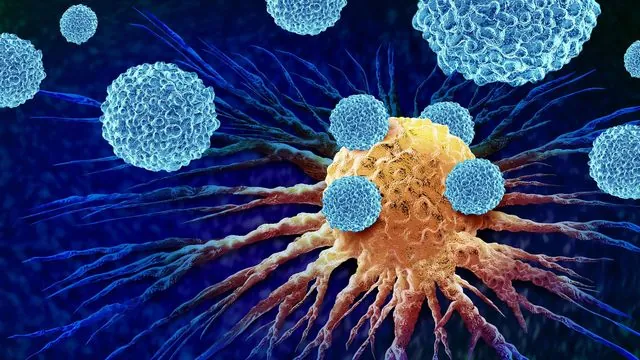
Breakthrough Discovery: A Game-Changer for Treating Aggressive Melanoma
2025-04-29
Author: Yu
A Groundbreaking Study from Moffitt Cancer Center
In an exciting development for cancer research, scientists at Moffitt Cancer Center have unveiled a promising strategy to enhance the treatment of one of the most aggressive types of melanoma. Their study, recently published in *Cancer Research*, highlights the potential of blocking a chemical process known as nitrosylation to make NRAS-mutant melanoma more susceptible to existing therapies.
The Challenge of NRAS-Mutant Melanoma
NRAS-mutant melanoma accounts for approximately 25% of all melanoma cases, posing significant treatment challenges due to its resistance to conventional therapies, including immunotherapy and targeted treatments. The researchers aimed to change this narrative.
Unlocking a Treatment Breakthrough
The study revealed that inhibiting nitrosylation can significantly increase the effectiveness of MEK inhibitors—drugs specifically designed to target the MEK-ERK pathway, a crucial pathway in tumor growth. By combining nitrosylation inhibitors with MEK inhibitors, researchers observed a marked reduction in tumor growth in both laboratory settings and animal models.
The Science Behind the Success
According to Dr. Sanjay Premi, an assistant member of the Tumor Microenvironment and Metastasis Department at Moffitt, “Our research indicates that nitrosylation plays a key role in helping cancer cells survive treatment and escape immune detection. By blocking this process, we can dismantle the cancer's defenses, leading to its destruction and empowering the immune system to combat the tumor more effectively.”
Immunogenic Cell Death: A New Ally
An intriguing finding from the study was that blocking nitrosylation triggered immunogenic cell death. This process causes tumor cells to emit distress signals that attract immune cells, including CD8-positive T cells and dendritic cells, which are essential for targeting and eliminating cancer.
A Bright Future for Melanoma Patients
Dr. Jyoti Srivastava, co-lead author and senior research scientist at Moffitt, noted, “This innovative approach not only limits tumor growth but also boosts the body’s natural anti-cancer immune response. It holds the promise of providing more durable outcomes for patients who currently face limited treatment options.”
Next Steps in Cancer Research
With these groundbreaking findings, the future of NRAS-mutant melanoma treatment could be changing for the better. The researchers advocate for further studies on nitrosylation inhibitors as part of combination therapies, not just for melanoma, but potentially for other cancer types as well.
Research Support and Funding
This transformative study was made possible by pilot funding from various sources, including Miles for Moffitt, Moffitt’s Molecular Medicine Program, and the National Institutes of Health. Such support underscores the collaborative effort necessary for advancing cancer treatment.



 Brasil (PT)
Brasil (PT)
 Canada (EN)
Canada (EN)
 Chile (ES)
Chile (ES)
 Česko (CS)
Česko (CS)
 대한민국 (KO)
대한민국 (KO)
 España (ES)
España (ES)
 France (FR)
France (FR)
 Hong Kong (EN)
Hong Kong (EN)
 Italia (IT)
Italia (IT)
 日本 (JA)
日本 (JA)
 Magyarország (HU)
Magyarország (HU)
 Norge (NO)
Norge (NO)
 Polska (PL)
Polska (PL)
 Schweiz (DE)
Schweiz (DE)
 Singapore (EN)
Singapore (EN)
 Sverige (SV)
Sverige (SV)
 Suomi (FI)
Suomi (FI)
 Türkiye (TR)
Türkiye (TR)
 الإمارات العربية المتحدة (AR)
الإمارات العربية المتحدة (AR)